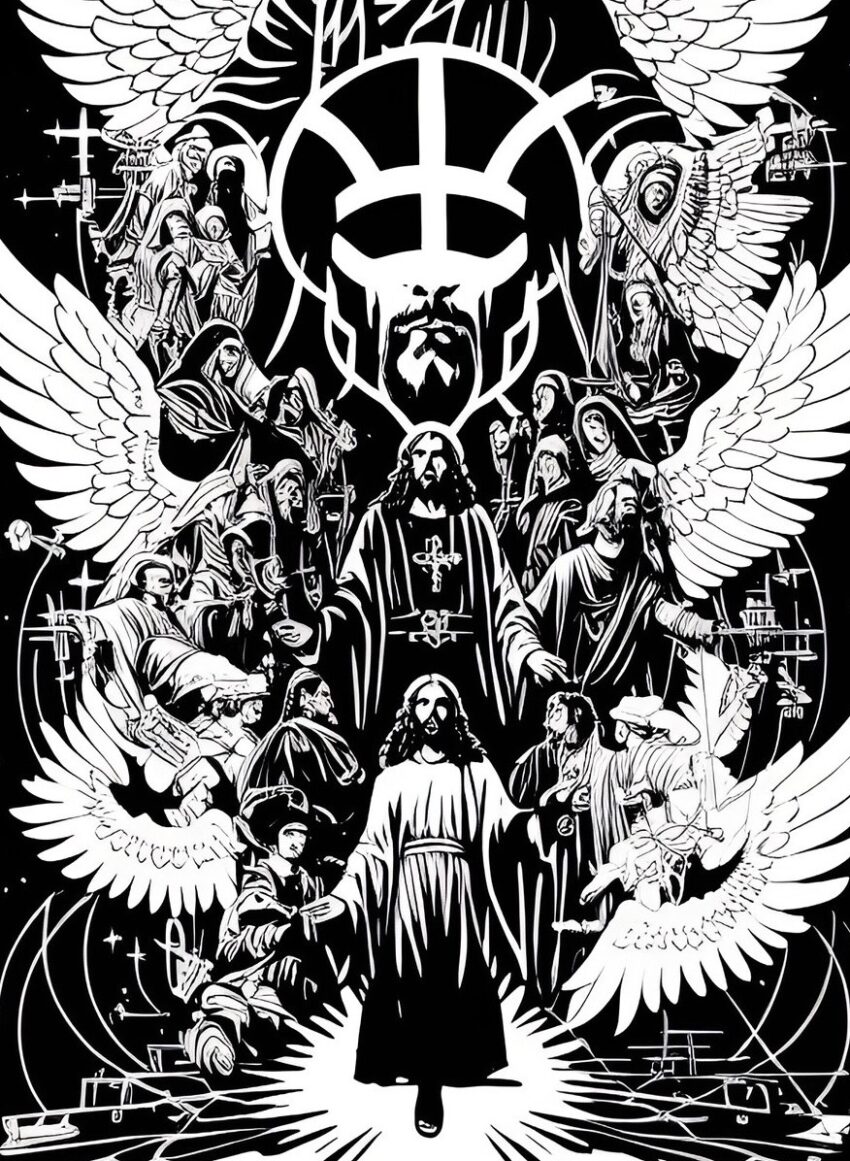A Wild Christianity: “Anthony Bloom once wrote that the Desert Fathers and their kind retreated in order to seek an ‘ardent and active solitude’: “These men leave everything because they have understood that in torment, disorder and purely earthly seeking they will not find the answer to the problems of their contemporaries . . . They have to find their souls again, and with their soul, the nation, the soul of their people, the soul of their contemporaries.” When the nation, the people, the culture needs to find its soul again—this is when we turn to the saints of the caves. This is when we call for their help, and their prayers. Assuming we can find them.”
Every Angel is Terrifying: “World War III isn’t found on a battlefield. It’s in the algorithms making you hate yourself and your own civilization. And if you do anything to take a stance against this degradation, from this bloodbath of morality, then you are a fascist. Our media states that some even believe they are fighting a primordial battle between good and evil. They are. You are. If there’s one thing that you take from this, let it be that the world still fights holy wars…”

IdeaMarket Says Goodbye: “To avoid information tyranny, we must systematize non-coercion. Changing our minds is hard. It tends to hurt. It tends to be unwelcome. Depending on the amount of emotional energy we’ve invested in our beliefs, changing our minds can feel like dying, and we often defend against it with the same desperate intensity. I recently saw a movie about an autistic woman who revolutionized the cattle industry by designing slaughterhouses that keep cows in a state of calm and peace as they walk to their deaths. To create a society that values truth, we must do this for our prejudices. We must build information infrastructure without prejudice regarding any voice or conclusion, so that as genuinely trusted voices and conclusions emerge, people walk willingly through the necessary death of mistaken beliefs.”
Intermission: Saints of the Greenwood: “In a culture in freefall, we have to find our soul again, and that task comes before any other.”
Intersectionality of the Smart but Poor: “While it is obvious that IQ correlates positively with economic success, there are other factors such as personality. Psychological traits associated with the smart but poor might include lower agreeability and conscientiousness, and higher introversion and neuroticism, though both very high and low neuroticism probably negatively correlate with success. The smart but poor demographic also disproportionately includes people on the autism spectrum, as well as those with ADHD. Even though a hyperactive mind is the trait of many genius, it could also hinder one from excelling in work or school. Outlier high IQ individuals often have trouble relating to others and live in their minds, which is exacerbated by these other psychological traits.”
The End of Christendom: “Christians have an urgent duty to advance rather than retreat, to rescue a dying world besieged by iniquity. ”
UFO Realism and the Uber-Umwelt: “…some UFOlogists entertain various versions of the ultraterrestrial hypothesis (UTH), according to which ‘sequestered terrestrial cultures . . . existing alongside us in distinct stealth’ are responsible for the anomalous phenomenon we are encountering in UFOs (H.E. Putoff, ‘Ultraterrestrial Models’). Some of the ideas here are that UFOs are technology wielded by a breakaway civilization of human beings or even some other species that evolved before us (that’s why they’re far ahead of us in terms of technology). Maybe these ultraterrestrials have always been in our neighborhood while perennially keeping an eye on us, or maybe they they were alerted of or become more concerned with our presence since we got our hands on nuclear weapons. In any event, the point of the ultraterrestrial model is that the ‘visitors” are not that distant from us on the evolutionary chain — they are earthlings! Thus, it is not surprising that we share much the same gross anatomy and biochemistry and that they construct what we can recognize as artifacts and technology.”
What’s in a Name? “Ukraine, in a sense, has been turned into a mercenary farm: a giant training facility for war where soldiers of fortune have been honing their skills for almost a decade. It is also a fantastic opportunity for trying new weapons and doctrine, much like Spain in 1936 or Manchuria in 1905. Like an enormous university campus dedicated to the trades of war, the country is a testing ground for the conflicts of the future: drones, TiktTok propaganda, you name it.”
